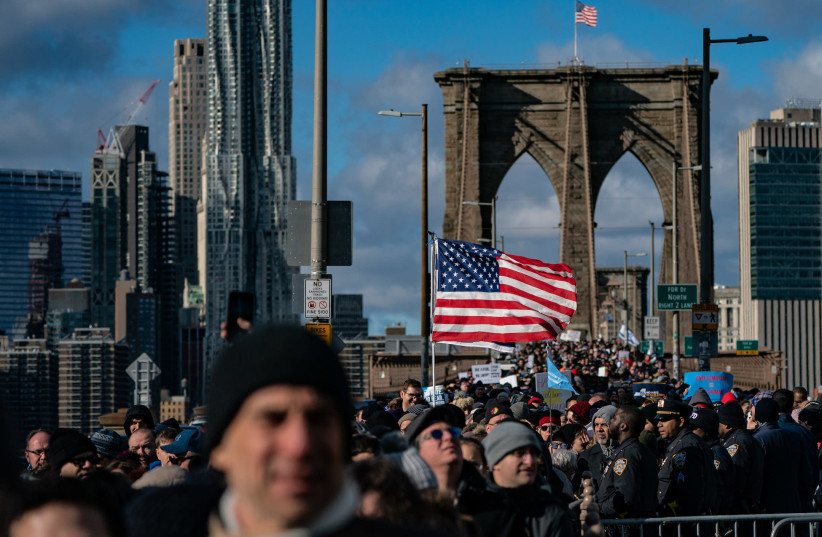New York City will mark the 30th anniversary on Friday of the deadly shooting attack on the Brooklyn Bridge in 1994, when a Lebanese-born terrorist shot at a van carrying 15 Hasidic teenagers, killing one and wounding several others in one of the city’s worst pre-9/11 terror incidents.
An event will be held on Friday, with Mayor Eric Adams, New York Attorney General Letitia James, and FBI officials expected to attend, alongside Devorah Halberstam, whose son, Ari Halberstam, was the sole fatality of the attack. He was 16 at the time.
Some 10,000 mourners in Crown Heights attended the 1994 funeral for Halberstam, who was a member of the Chabad-Lubavitch Hasidic movement and had been personally tutored by Rabbi Menachem Mendel Schneerson, the movement’s leader. Rudolph Giuliani and Mario Cuomo, the mayor of New York City and governor of New York State at the time, were also in attendance.
The incident was originally classed as ‘road rage,’ but the killer later confessed that he had shot the Hasidic teenagers “because they were Jewish.” In 2000, the FBI reclassified the shooting as a terrorist attack.
The details of the confession were only released in 2012, almost twenty years after the incident itself, following years of dispute over the nature of the killing, which took place shortly after the Jewish terrorist attack in Hebron that saw the Brooklyn-born extremist Baruch Goldstein murder 29 Muslim worshipers at the Tomb of the Patriarchs.

At trial, the defense team of Rashid Baiz, who carried out the Brooklyn terror attack, cited the Hebron incident as having triggered their client’s rampage, and alleged that he was suffering post-traumatic stress disorder from his childhood during the Lebanese Civil War. The jury rejected this argument, and sentenced Baiz to a minimum of 141 years in state prison.
In 2023, the Anti-Defamation League offered a new $50,000 reward for information that would aid in the arrest and conviction of others involved in the attack.
Victim’s mother has since become an anti-terrorism advocate
Advocacy by Halberstam’s mother, Devorah Halberstam, who will attend the memorial event on Friday, contributed to the passage of key anti-terror laws in New York, the first state laws to deal specifically with terrorism, authored under the leadership of then-governor George Pataki in 2001.
That legislative effort imposed a death penalty for terrorism (which has never been imposed, but was sought in 2023 for the perpetrator of a 2017 car-ramming attack in Manhattan) and was first applied in a trial by jury in 2023, when Abdullah el-Faisel, a radical cleric from Jamaica, was convicted in connection with efforts to recruit Western Muslims to ISIS.
Devorah Halberstam also advocated for the passage of “Ari’s Law,” which requires a gun license in order to buy a kit that can be used to assemble a working firearm.